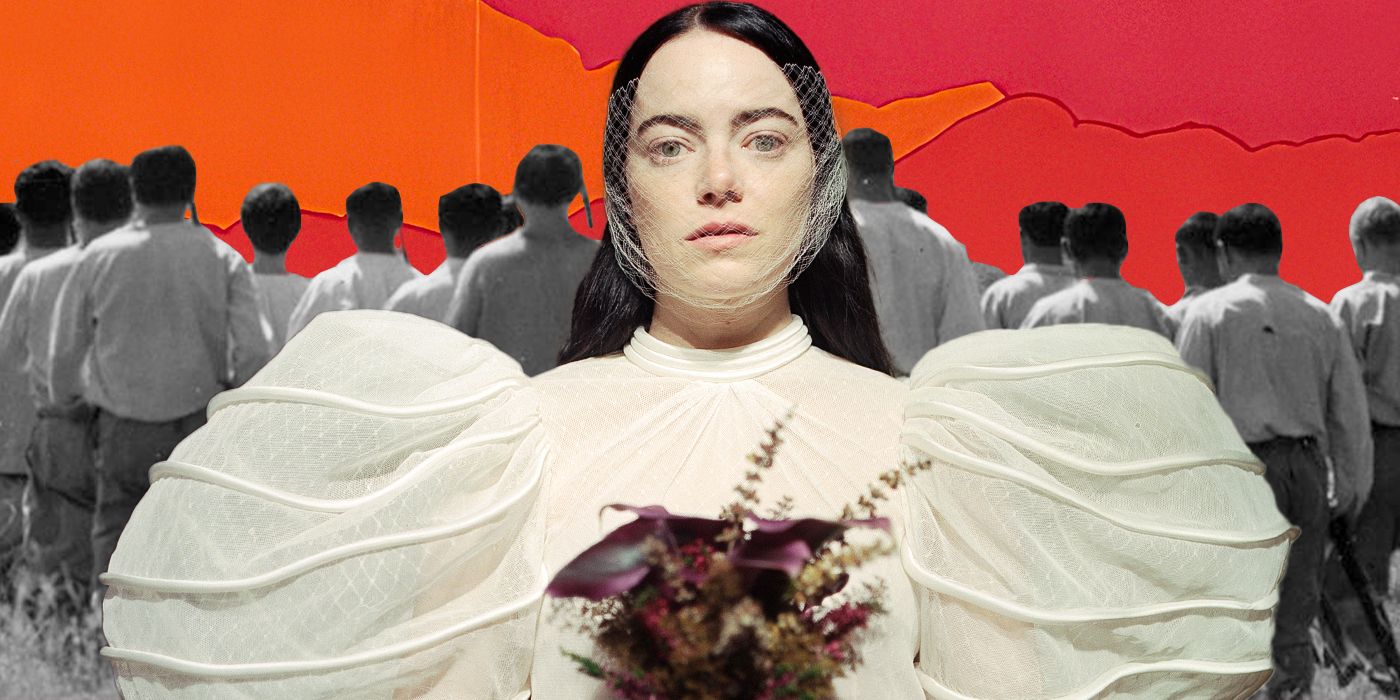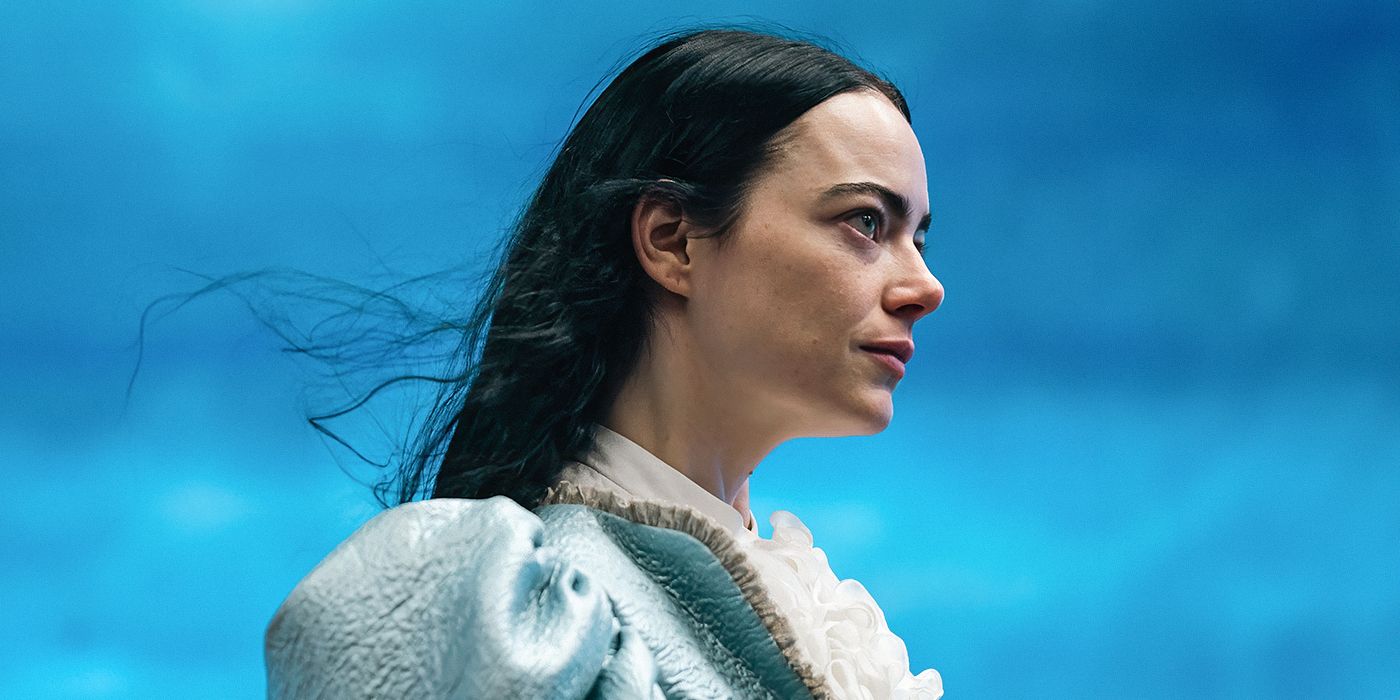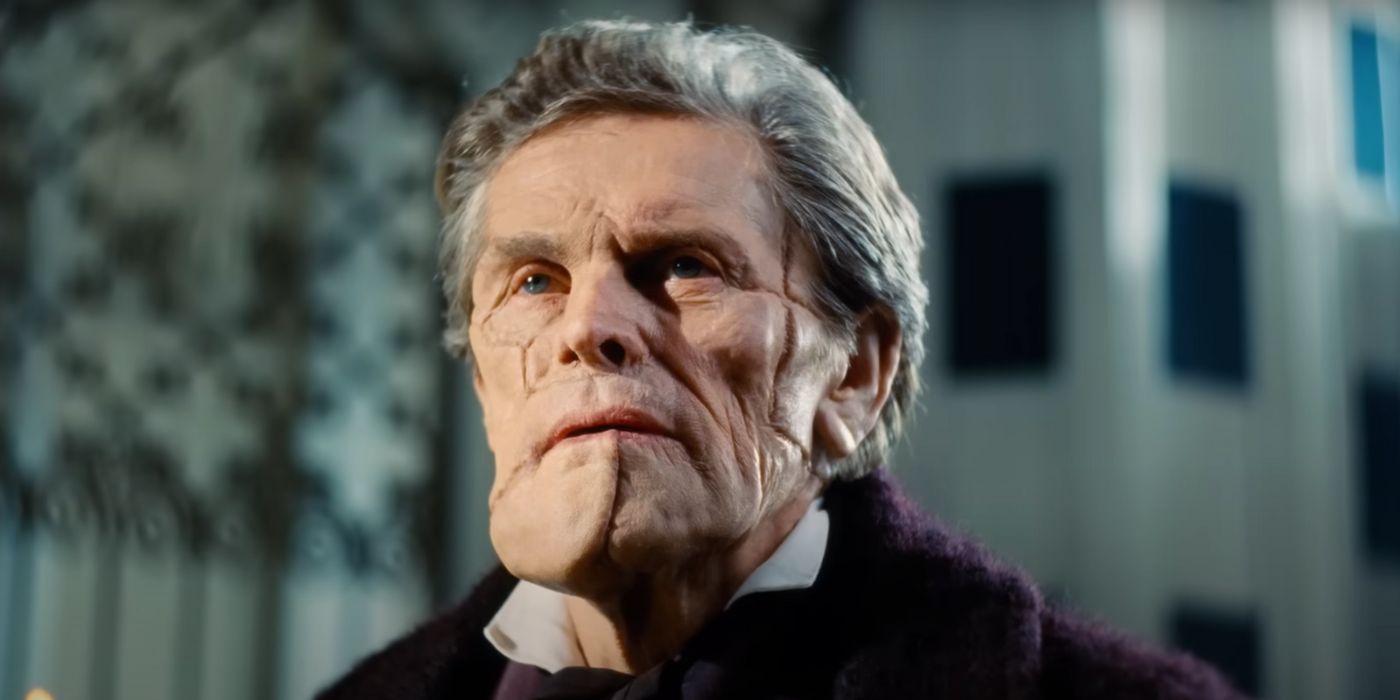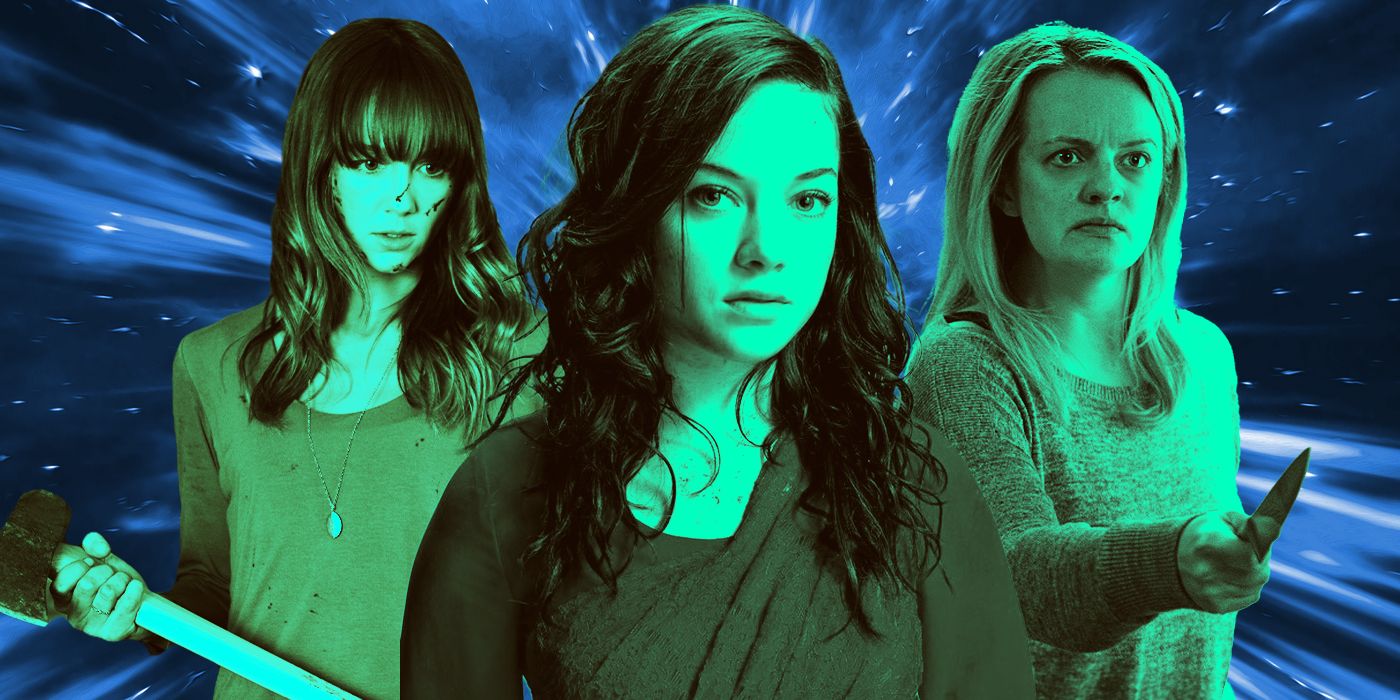Editor’s Note: The following contains spoilers for ‘Poor Things’
The Big Picture
- Bella Baxter takes center stage in the film adaptation of Poor Things, unlike in the novel which focuses on Archibald McCandless.
- The film tells the story from Bella’s perspective, allowing for more immersive visuals and a deeper exploration of her character.
- The film adds a dramatic ending that elevates Bella’s control over her own life, making for a more satisfying conclusion.
One of the most imaginative films from recent memory is Yorgos Lanthimos’ Poor Things, a comedic romp with darker elements of a fantastical world. It brilliantly marries the macabre with hints of the real world, but more than anything, it stands on its own as an innovative and creative effort. It is clear there is some inspiration from Mary Shelley‘s Frankenstein, and yet this is not where Lanthimos and screenwriter Tony McNamara took most of their material from. The original Alasdair Gray novel laid the groundwork for this 2023 film adaptation, but there are a few key differences some might not know upon first glance. Poor Things works well on its own merit as a film, and yet it still retains the secret ingredient of the book.
Poor Things
The incredible tale about the fantastical evolution of Bella Baxter, a young woman brought back to life by the brilliant and unorthodox scientist Dr. Godwin Baxter.
- Release Date
- December 8, 2023
- Writers
- Tony McNamara
Emma Stone’s Bella Baxter Is the Protagonist of the Film
It might come as a surprise to some viewers, but Bella Baxter was never always front and center. In the novel, much of Alasdair Gray’s writing is told from the perspective of Archibald McCandless. He is a medical student under the tutelage of the brilliant Doctor Godwin Baxter, who is responsible for reviving Victoria into Bella. Massive portions of the novel focus on McCandless’ notes he takes observing Bella, his interactions with her, and how their relationship blossoms from a social experiment to a companionship. In the film, McCandless (played by Ramy Youssef) does assist in further studies related to Bella (Emma Stone), and his presence in the Baxter home remains an integral part of the narrative. The first name is changed to “Max” in the film, but more importantly, his notes are more of a side-piece as opposed to the main thrust of the story.
Despite being associated with Frankenstein for obvious reasons, the literal structure of the novel seems to take inspiration from Bram Stoker’s Dracula as well, which is another horror tale with the text being told by a supporting character and showcasing different records across extended time periods. Alasdair Gray self-inserts himself with a prefaced introduction, and he claims records of the fictional story are found by his real-life friends Michael Donnelly and Elspeth King. Other elaborations on different aspects of European history and literature are referenced, but McCandless is like the Jonathan Harker of this story. He serves as a vessel in this world, which, of course, is humorous in and of itself. His narration might come off a tad unreliable in describing the daily habits of Bella, and this is still purposeful considering both the book and film are about men controlling a woman’s life.
McNamara and Lanthimos are clearly in the right state of mind for Bella, because telling the story entirely from Bella’s perspective allows for some fascinating visuals, and it feels a lot more immersive. Rather than rely on other people talking about her, Emma Stone has breathing room to fully inhabit this character and the audience sees the world through her eyes. Through Bella’s eyes, everything is in an exaggerated form, from the men to the production design, but it still all makes sense considering how bizarre the world is anyway.
Did Godwin Baxter Have Other Intentions in ‘Poor Things’?
At least according to Mr. McCandless, Dr. Godwin Baxter is described as someone looking for a companion, and in particular, creating a being to satisfy his existence. The text may not always shout out at the reader, but it definitely has some sort of sexual connotation to it. McCandless certainly describes it this way, which would fit, since most of the central male characters try to persuade or control Bella in some fashion. As for the film, Godwin (Willem Dafoe) creates her perhaps as a partner, but after she is awoken he takes on more of a parental role.
Viewers see Godwin reading books to Bella before bed, they have supper together, and he generally appears as a guide and protector to her. There are shades of mentorship within the novel, which is still kept intact given Gray and Lanthimos are going for the same message overall. However, the intimacy differs between the two, because the book portrays Godwin as far more possessive in lieu of a caring dad.
Dafoe easily slips into the mad genius plagued by the good of science, but he, of course, is working with personal issues as well, given his relationship with his father. A part of the fun is seeing whether he desires a relationship or not, or genuinely cares for her in the text. Based on the film, Dafoe decides to go along the more positive route, and it seems to be a bit more apparent in the script.

‘Poor Things’ Director Yorgos Lanthimos Named This Film as an All-Time Favorite
‘Poor Things’ director Yorgos Lanthimos claims this Hungarian film is one of his all-time faves and its influence over his career is apparent.
Writer Tony McNamara Adds Something to ‘Poor Things’ That Is Missing in the Book
Aside from the design of the novel, one of the major shifts from the book to the film is the ending, which feels drastic yet more than appropriate in the final form. Writer Tony McNamara adds an entire sequence where Bella is finally about to wed McCandless, but it is interrupted by her former partner Duncan Wedderburn (Mark Ruffalo) and Alfie Blessington (Christopher Abbott). Wedderburn brings attention to the wedding with Alfie because he feels betrayed and tossed aside from Bella despite overseeing his own abusive traits. He naturally turns to Blessington out of spite, who turns out to be the former husband of Bella from her past life as Victoria.
She willingly goes with him to his estate and recognizes his antagonistic nature towards the serving staff when he waves a pistol around to remind everyone he runs the place. Bella eventually outsmarts him and prevents further drama from occurring, as she reclaims her place at the Baxter residence, which has weird experiments roaming around like an altered Alfie. Arguably the most drastic shift as far as the progression of the story is concerned, but it still works considering it maintains the tone and bookends the beginning of the film. The moment does feel jarring at first, which in large part is due to there being closure between Bella and McCandless. However, this addition elevates Bella to further heights because now her life truly is in her control. She and McCandless are married and her compatriots are accompanying her, but this reminds the audience this is Bella’s story from beginning to end.
Poor Things is now playing in theaters.
BUY TICKETS





